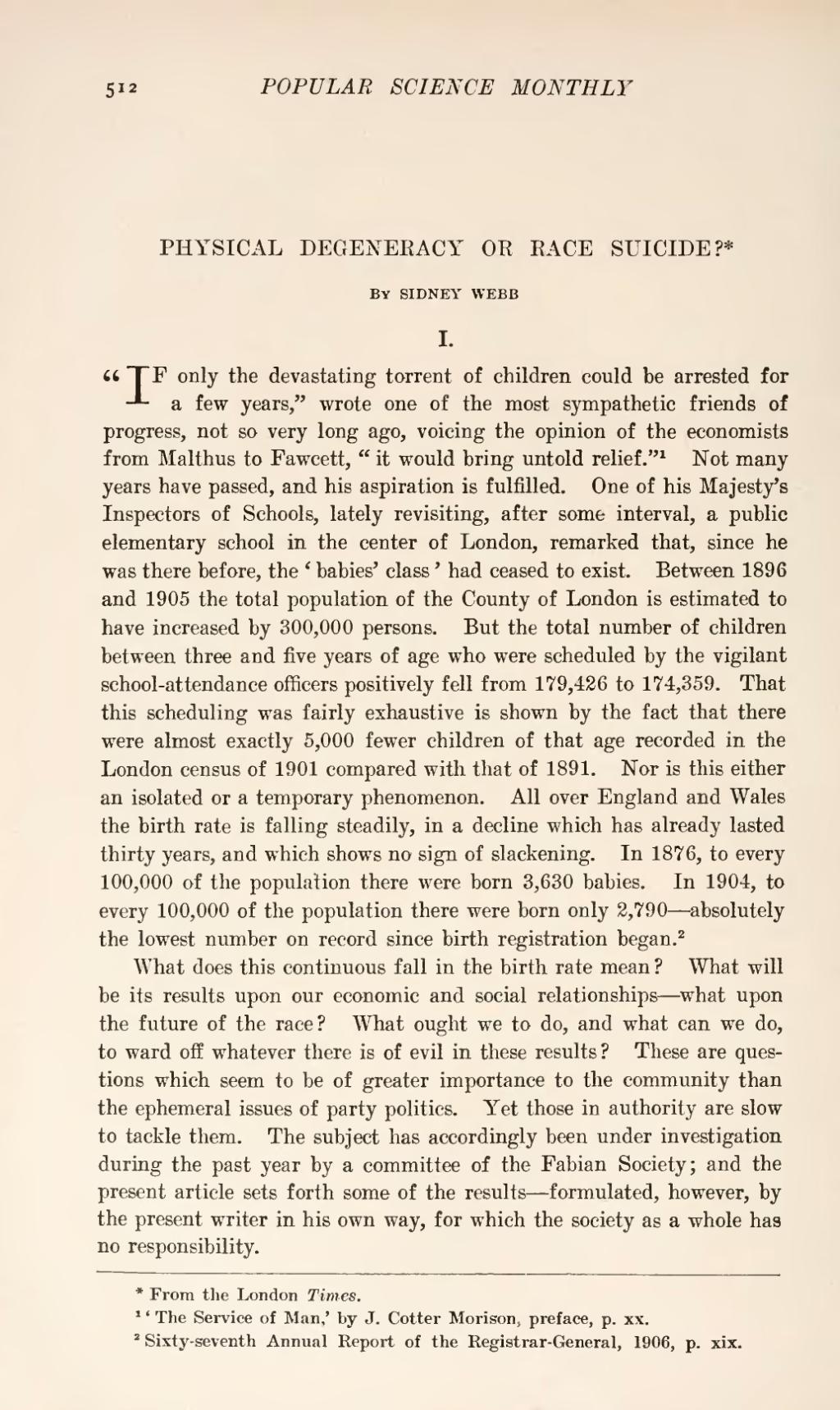| PHYSICAL DEGENERACY OR RACE SUICIDE?[1] |
By SIDNEY WEBB
I.
"IF only the devastating torrent of children could be arrested for a few years," wrote one of the most sympathetic friends of progress, not so very long ago, voicing the opinion of the economists from Malthus to Fawcett, "it would bring untold relief."[2] Not many years have passed, and his aspiration is fulfilled. One of his Majesty's Inspectors of Schools, lately revisiting, after some interval, a public elementary school in the center of London, remarked that, since he was there before, the 'babies' class' had ceased to exist. Between 1896 and 1905 the total population of the County of London is estimated to have increased by 300,000 persons. But the total number of children between three and five years of age who were scheduled by the vigilant school-attendance officers positively fell from 179,426 to 174,359. That this scheduling was fairly exhaustive is shown by the fact that there were almost exactly 5,000 fewer children of that age recorded in the London census of 1901 compared with that of 1891. Nor is this either an isolated or a temporary phenomenon. All over England and Wales the birth rate is falling steadily, in a decline which has already lasted thirty years, and which shows no sign of slackening. In 1876, to every 100,000 of the population there were born 3,630 babies. In 1904, to every 100,000 of the population there were born only 2,790—absolutely the lowest number on record since birth registration began.[3]
What does this continuous fall in the birth rate mean? What will be its results upon our economic and social relationships—what upon the future of the race? What ought we to do, and what can we do, to ward off whatever there is of evil in these results? These are questions which seem to be of greater importance to the community than the ephemeral issues of party politics. Yet those in authority are slow to tackle them. The subject has accordingly been under investigation during the past year by a committee of the Fabian Society; and the present article sets forth some of the results—formulated, however, by the present writer in his own way, for which the society as a whole has no responsibility.
